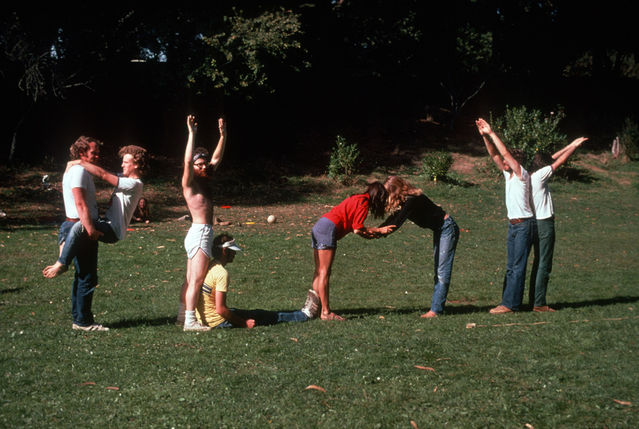
Happiness
The Playful Life
Playfulness facilitates the experience of positive emotions in all age groups.
Posted August 2, 2016

In his paper "Playfulness over the lifespan and its relation to happiness," Dr. René Proyer describes the results of an online survey of, should you wonder, "4100 German-speaking respondents aged between 18 and 92 years (M=45.38, SD=12.00); 78.6% were women. Approximately one fifth (18.0%) were single, 46.2% were married, 22.7% were in a partnership but not married, 11.5% were divorced or separated, and 1.6% were widowed. Only a small percentage had basic schooling (3.3%), 17.8% had completed vocational training, 7.0% had a school-leaving diploma qualifying them to attend a university, 16.3% had a degree from a University of Applied Sciences, and 42.7% held a diploma from a University."
The paper begins:
Playfulness in adults is an understudied topic. Little is known about playfulness and its correlates in the elderly, and in particular about its relation to well-being. This study is a call for a stronger consideration of playfulness in research and practice. A positive relation with various components of happiness is reported and its potential for interventions to increase well-being is highlighted.
and then continues with this handy definition of playfulness:
“the predisposition to frame (or reframe) a situation in such a way as to provide oneself (and possibly others) with amusement, humor, and/or entertainment" [Barnett LA (2007) "The nature of playfulness in young adults." Pers Indiv Differ 43:949–958]
here are a few highlights:
"…playfulness facilitates the experience of positive emotions in all age groups and that greater levels of playfulness are associated with greater well-being across the life-span."
I interrupt to comment:
First, allow me to both embolden and italicize: "greater levels of playfulness are associated with greater well-being across the life-span." This is probably all you need to remember about this whole article.
Next, a bit about playfulness.
As you know, I believe that life, itself, is playful. And maybe the whole universe. I think it's a constant. We're all playful. All the time.
Note the following:
"This study shows that the expression of playfulness was comparable across the age spans covered in this study and that the variation in the mean scores was comparatively small…"
It's not about the inherent playfulness of anybody. It's about the expression of playfulness. About the times in which we feel safe enough, free enough, healthy enough to be demonstrably playful, to let our playfulness out, to share our playfulness with accessible segments of the universe.
The paper continues:
"Therefore, the notion that elderly people are not interested in being playful or are less playful than younger people was not supported. This underlines the claim that more research is needed for testing the role of playfulness in healthy aging and for well-being and happiness in the elderly. It is argued that playfulness can be a resource (e.g., for coping with stressors or as an elicitor of positive emotions) for people of all ages and that people find age-specific ways of exerting their playfulness, e.g., from physically active forms to intellectual/creative variants."
From the summary:
"In across-sectional design, playfulness was stable across the lifespan; variations in the mean scores were relatively small...There were no gender differences. Playfulness was best predicted by the scale assessing a pleasurable life and was positively related to happiness."
"Conclusion. Playfulness seems to be of relevance in all age groups and displays robust relations with different indicators of well-being."
This article originally appeared in A Playful Path
For further inspiration and validation see also:
Play and Playfulness (part two)
Play and Playfulness (before there was a part two)

